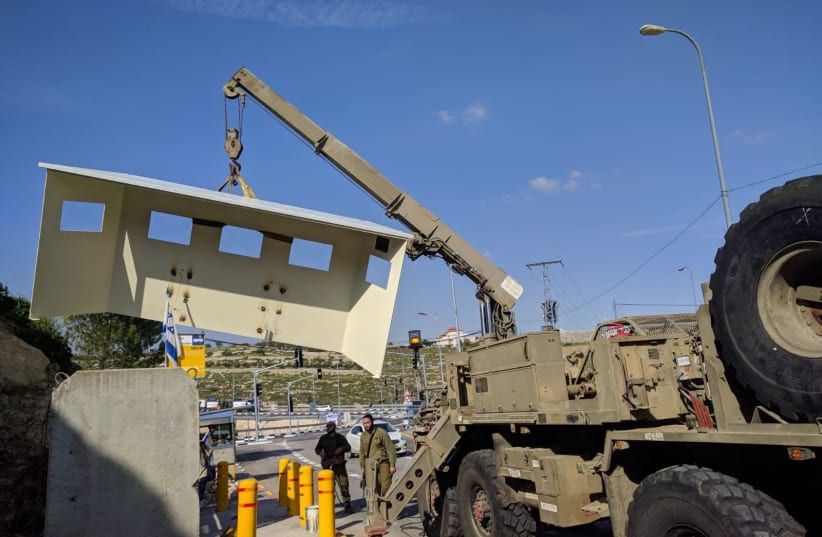Settlers rejected concrete protective bunkers at bus stops, which the IDF began to install in the Binyamin region on Wednesday in the aftermath of Sunday’s shooting spree near Ariel, which claimed two lives and wounded a third person.
Within hours after putting them up, the IDF took the bunkers down. This included one they had placed at the bus stop near the Givat Assaf junction, where a terrorist attack took place last year in which two soldiers were killed.
The bunkers are made up of three sides of a rectangle, with one long wall and small short ones, as well as a roof.
“The fortifications were placed without prior coordination with the [Yesha Council],” its chairman, Hananel Dorani, said.
“We turned to the army and were promised that they would be removed today,” he said. “We are pleased that the fortification at the Givat Assaf junction has already been removed.”
Efrat Council head Oded Revivi said that the building of more fortifications and walls would just inspire more terrorist attacks and would make it hard to carry on a normal life.
Over the last four years, civilians and soldiers standing at bus stops and hitching posts have been particularly vulnerable to stabbing, shooting and vehicular attacks.
To ensure safety at the bus stops, the IDF stationed soldiers there. It also added concrete boulders and half-size polls near the curbs to make it hard for vehicles to run down pedestrians.
Revivi said that the latest fortification, similar to ones the army placed down south to protect civilians from rocket attacks, was one step too far.
“I hope that decision-makers will find a better way to deal with threats while helping civilians maintain a normal routine,” Revivi said.
New Right Party head Naftali Bennett said the idea that soldiers would hide in bunkers was “shameful.”
“This is not how to become victorious over terrorism,” Bennett said. It is more effective to kill the terrorists and destroy their homes, he said.
